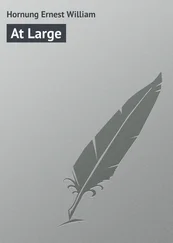Ernest Hornung - Peccavi
Здесь есть возможность читать онлайн «Ernest Hornung - Peccavi» — ознакомительный отрывок электронной книги совершенно бесплатно, а после прочтения отрывка купить полную версию. В некоторых случаях можно слушать аудио, скачать через торрент в формате fb2 и присутствует краткое содержание. Жанр: foreign_prose, на английском языке. Описание произведения, (предисловие) а так же отзывы посетителей доступны на портале библиотеки ЛибКат.
- Название:Peccavi
- Автор:
- Жанр:
- Год:неизвестен
- ISBN:нет данных
- Рейтинг книги:3 / 5. Голосов: 1
-
Избранное:Добавить в избранное
- Отзывы:
-
Ваша оценка:
- 60
- 1
- 2
- 3
- 4
- 5
Peccavi: краткое содержание, описание и аннотация
Предлагаем к чтению аннотацию, описание, краткое содержание или предисловие (зависит от того, что написал сам автор книги «Peccavi»). Если вы не нашли необходимую информацию о книге — напишите в комментариях, мы постараемся отыскать её.
Peccavi — читать онлайн ознакомительный отрывок
Ниже представлен текст книги, разбитый по страницам. Система сохранения места последней прочитанной страницы, позволяет с удобством читать онлайн бесплатно книгу «Peccavi», без необходимости каждый раз заново искать на чём Вы остановились. Поставьте закладку, и сможете в любой момент перейти на страницу, на которой закончили чтение.
Интервал:
Закладка:
"Mr. Carlton!" shouted Tom.
Before replying, the clergyman spun something into the heart of the flames; in the thickening smoke it was impossible to see what; but the same second he was round upon his heel, coughing and choking, his face black, his eyes fires themselves, purpose and determination in every limb.
"Tom? Thank God it's you! We must get this under. Out of it before we suffocate!" And with his own rush he carried the builder into the open air.
"What's done it, sir?"
"Done it? Wait till we've undone it! We can if we work together. Ah! here are more of you. Buckets, men – buckets!" cried Carlton, rushing to meet a half-dressed medley at the gate, and commanding them as though there had been no other meeting earlier in the night. "You who live near, run for your own; the rest into my kitchen and find what you can; buckets are the thing! One of you pump; the rest form line from my well to the church, and keep passing along. You see to it, Mr. Jones!"
And for a while the schoolmaster and churchwarden, carried away as usual by his feelings and self-importance, was as busy enforcing the rector's orders as he had made himself in breaking his windows an hour or two before.
"Let one man ride or run for the Lakenhall engine; not you, Tom!" exclaimed the clergyman, seizing Ivey by the arm. "They'll be all night coming, and I can't spare you."
"I'll stay, sir."
"Water's no use to windward of a fire; it's spreading straight up the church. We want to be on the other side to stop it."
"The aisle's not afire!"
"But they couldn't get the water to us, even if we got through alive. No; where the walls are down for the transepts – that's the place. Which side's boarded strongest?"
"Both the same, sir."
"Then we'll hack through the nearest! A saw and an axe, and we'll be through by the time the first bucketful's ready for us."
And, friends again, but both unconscious of the change, they rushed together to the shed of which Robert Carlton had so lately taken leave: in the fever of the moment even that leave-taking was forgotten.
It was the north transept which faced the shed. Already the walls were a dozen feet high, but a doorway had been left. The greater gap between transept and nave was vertically boarded over within the church, and on these boards fell the rector with his axe, to make an opening for Tom's saw. They had light enough for their work. The interstices between the boards were as the red-hot strings of a colossal harp; quickly a couple were cut, and the boards beaten in; and it was as though the wind had come down a smoking chimney. The pair fell back on either side of the black stream that gushed out like water. Then cried Carlton in his voice of command:
"Look here! you stay where you are, Tom."
"With you, sir?"
"No, I must have a look; but one's enough."
"Not for me, Mr. Carlton. I follow you."
"Then you keep me where I am," said Carlton, sternly.
"All right, sir! You follow me!"
Next instant they were both through the breach, the builder first by the depth of his chest. And they stood up within, but were glad to crouch again out of the smoke. Already a dense reek hid the roof, and every moment added to the depth of that inverted sea. It was a sea of ineffectual currents, setting towards the smashed windows, the new breach, the open door, but caught and diverted and sucked into the inky whirlpool that the wind made under the roof, and escaping only by chance fits and sudden starts. On the other hand, there was still air enough to breathe within a few feet of the ground, and with water it seemed as if something might yet be done. But it was no longer a very little fire: at best the nave must be gutted now; to save roof and chancel was the utmost hope. Yet here and there the worst seemed over. The blazing hassocks were now only a glowing heap, and still the roof had not caught. As the two men crouched and watched, the flames felt the front pews with their splay blue tentacles, and the woodwork which was still untouched glistened like a human body in pain.
"You see that?" said Mr. Carlton, pointing to this moisture.
"What is it?"
"Paraffin! Look at the lamps; he's simply emptied them – "
"Who, sir – who?"
"God knows, and may God forgive him! I have enemies enough this morning, though not more than I deserve. If only they will be my friends for one hour, for the sake of the church! Are they never coming with that water? Run and tell them a bucketful would make a difference now, but cartloads will make none in ten more minutes! And tell them what I said just now: bid them for God's sake think of nothing but the fire till we get it under."
He was thinking of nothing else himself, confident still of some measure of success, only fretting for his water. In Ivey's absence he stripped to the waist, and with his long coat essayed to beat the little flames out as they spread and leapt, the blue and yellow surf of the encroaching tide; but for one he extinguished he fanned a hundred, so he retreated before he was flayed alive. And they found him stooping near the opening, half-naked, scorched, begrimed, but not disheartened; a strange figure in the place that knew him best in vestments, if any of them thought of that.
The first man had a bucket in each hand, but had spilt freely from both in his haste. Carlton would not let him in, but received the buckets through the hole, dashed their contents over the burning pews, and returned them empty without waiting to see results. When he had time to look, a little steam was rising, but the fire raged with undiminished fury. The next comer was a boy with a brimming watering-can; but it is difficult to fling water with effect from such a vessel, and pouring was impossible in the increasing heat. Then came Tom Ivey with two more buckets.
"Keep outside," cried Carlton, taking them. "There's only work for one in here. Can't they form line as I said, and pass along instead of carrying?"
"No, sir – not enough of us for the distance."
"Not enough of you who'll put the church before the parson! That's what you mean. The parson may deserve burning alive, but the poor church has done no wrong!"
And he continued his exertions in a bitter spirit not warranted by the real circumstances, for his masterful monopoly of all danger had won some sympathy outside, and many a one who had flung a stone was running with a bucket now. More, however, stood with their hands in their pockets; for East Anglia is constitutionally phlegmatic, and not all the village had joined in the indignant excesses of the evening.
The saddler came no farther than the fence in front of his house and workshop. He was that implacable creature, the offended countryman.
George Mellis did not even see the fire; already he had shaken the dust of Long Stow from his feet for good.
Thus, of the three types, as far removed from one another as the points of an equilateral triangle, who had put in their individual word of reproach, of denunciation, and of sympathy more insufferable than either, only one was present on this lurid scene; but that one was doing the work of ten.
"That there Tom Ivey," said one of a group on the safe side of the rectory fence, "he fares all of a wash. Yet I do hear as how he come up to the rectory when he'd cleared the garden and called Carlton over somethun wonderful."
"I lay it was nothun to the calling over he had from Jasper."
"Where is Jasper?"
"Been indoors ever since: a touch of the old trouble, the missus told Jones when he called."
"That's a pity. This would've soothed his sore."
One or two observed that that fared to soothe theirs; for there was no reaction on the safe side of the fence. But the worst said in the Suffolk tongue was invariably capped by a different order of voice, which chimed in now.
Читать дальшеИнтервал:
Закладка:
Похожие книги на «Peccavi»
Представляем Вашему вниманию похожие книги на «Peccavi» списком для выбора. Мы отобрали схожую по названию и смыслу литературу в надежде предоставить читателям больше вариантов отыскать новые, интересные, ещё непрочитанные произведения.
Обсуждение, отзывы о книге «Peccavi» и просто собственные мнения читателей. Оставьте ваши комментарии, напишите, что Вы думаете о произведении, его смысле или главных героях. Укажите что конкретно понравилось, а что нет, и почему Вы так считаете.












